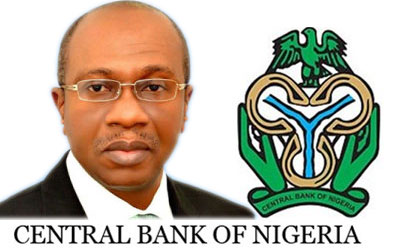P
ProfRem
Guest
The Central Bank of Nigeria, monetary policy committee on Tuesday had raised interest from 12% to 14%, following the introduction of the new FX market in June, 2016.
The committee also voted to retain cash reserve ratio at 22.5% and left the asymmetric corridor around MPC retained at +200 basis point(BPS) & -500 basis points(BPS) while Liquidity ratio was kept at 30%.
In a report on PUNCH newspaper, Multiple banking on Thursday said that the lenders would as early as next week begin to dispatch letters to their customers, informing them of the upward review of the interest rates on their loans.
“Banks don’t waste time on matters like this. The increase in the MPR means interest rates on loans have to go up. We have started writing letters to our customers. A few may go this week, while more will go next week. Customers will get the letters in emails and hard copy,” a top executive of a tier-1 bank told Punch on condition of anonymity.

The new development will affect Nigerians in the following ways...
- That means the cost of capital will increase and more people will be less interested in taking loans from the banks
- it will encourage savings
- likewise the few that take loans will reflect the interest rate in their selling prices as it will affect their overall cost of production....
- it will improving the liquidity of the foreign exchange market, i.e there will be much cash in circulation at the stock market to pave way for a stronger Naira thereby reducing the pressure on the currency.
- this will at the end of the day lead to increased prices of basic items and in the long run inflation
- decrease in economic growth: When the interest rate is high, and thus borrowing rates is difficult, many firms find it difficult to finance big projects or expand their businesses, and this thus makes economic growth stagnant
- income investment reduces: MANY INVESTMENTS SUCH AS STOCK AND BOND suffer, especially the ones with more debt than equity in their capital structure. Since these companies find the interest rate high and they have more debt in their portfolio, business activities fall and Profits fall too and this affects the Dividends paid to the shareholders
- Lenders would benefit: People who lend out money would benefit strongly because since interest rates are high, It means extra money to them - when companies are restricted from borrowing, It has the ability to make them cut back on expenses, and this could mean cutting labour costs and thus causing unemployment.
The committee also voted to retain cash reserve ratio at 22.5% and left the asymmetric corridor around MPC retained at +200 basis point(BPS) & -500 basis points(BPS) while Liquidity ratio was kept at 30%.
In a report on PUNCH newspaper, Multiple banking on Thursday said that the lenders would as early as next week begin to dispatch letters to their customers, informing them of the upward review of the interest rates on their loans.
“Banks don’t waste time on matters like this. The increase in the MPR means interest rates on loans have to go up. We have started writing letters to our customers. A few may go this week, while more will go next week. Customers will get the letters in emails and hard copy,” a top executive of a tier-1 bank told Punch on condition of anonymity.

The new development will affect Nigerians in the following ways...
- That means the cost of capital will increase and more people will be less interested in taking loans from the banks
- it will encourage savings
- likewise the few that take loans will reflect the interest rate in their selling prices as it will affect their overall cost of production....
- it will improving the liquidity of the foreign exchange market, i.e there will be much cash in circulation at the stock market to pave way for a stronger Naira thereby reducing the pressure on the currency.
- this will at the end of the day lead to increased prices of basic items and in the long run inflation
- decrease in economic growth: When the interest rate is high, and thus borrowing rates is difficult, many firms find it difficult to finance big projects or expand their businesses, and this thus makes economic growth stagnant
- income investment reduces: MANY INVESTMENTS SUCH AS STOCK AND BOND suffer, especially the ones with more debt than equity in their capital structure. Since these companies find the interest rate high and they have more debt in their portfolio, business activities fall and Profits fall too and this affects the Dividends paid to the shareholders
- Lenders would benefit: People who lend out money would benefit strongly because since interest rates are high, It means extra money to them - when companies are restricted from borrowing, It has the ability to make them cut back on expenses, and this could mean cutting labour costs and thus causing unemployment.

